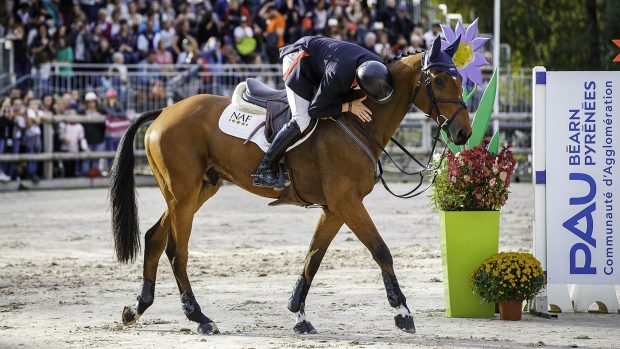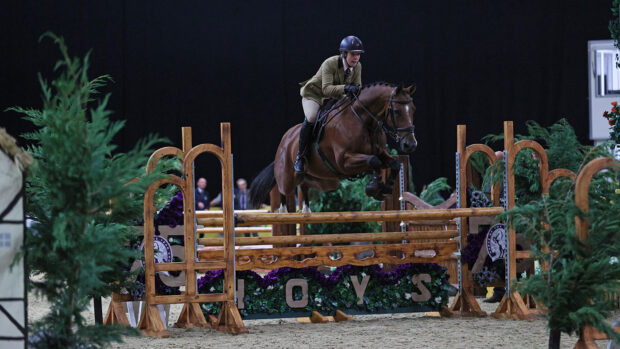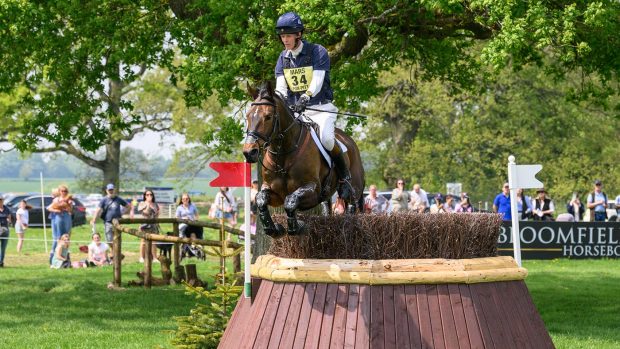In the wake of two weeks at the Alltech FEI World Equestrian Games (WEG), I thought a lot about the sports I saw and the results in the various disciplines.
In particular, I wondered how Britain’s showjumpers could go from team gold at the past two championships to nothing, while other sports ran so spectacularly to form. We’ve all heard about the horse injuries that plagued our showjumpers and other reasons, but is there more to it than that in terms of the actual nature of the different horse sports?
My conclusion was that the sports in which the riders — or athletes, bearing in mind WEG has vaulting and driving — can most closely recreate the competition requirements at home are generally those which run most closely to form.
So in vaulting and dressage, the competitors can practise exactly what they will do at the championships in advance. They know what size arena they will be performing in, what music they will use and exactly what movements they want to carry out.
Of course, these performers are pushing at the brink of what is possible, so mistakes can still happen — from riders forgetting the test (remember the special at last year’s Europeans, anyone?) to a slip as a vaulter descends from a lift, sending a three-man formation crashing down.
And unknowns remain in the mix — such as the weather, the going and the “horse factor”. And while some horses are calmer than others, no one really knows in advance how their equine will react in certain situations — remember Chrevi’s Capital, the Canadian dressage horse who became so upset at London 2012 and was eliminated?
So even in the more predictable sports, weird things can happen. But generally, everyone can more or less reproduce what they do at home again and again and again and therefore you get the same results. Maybe it’s something to do with the fact these disciplines are subjective, too — do the judges give the same marks again and again and again, even for different performances? Well, I couldn’t possibly comment…
In other disciplines, such as showjumping, eventing and driving, the course forms a huge factor in every event. Competitors can train in advance to tackle different types of obstacle, often building up a partnership and experience over many years, but ultimately the track will always be something of a roulette wheel in the contest.
As such, the form guide can go out the window. This applies particularly in showjumping, where one fence down can ruin a whole competition. You simply cannot train a horse to clear every fence every time — but you can, it seems, train it to do the perfect piaffe 99% of the time.
In eventing and driving, the ground is another an unpredictable factor, unlike in the sports which are arena-based (again, these include dressage and vaulting) — there’s no doubt it exerted a huge influence at WEG.
But the fact there are three disciplines combined seems to exert a levelling influence — if things go slightly wrong in the dressage, there may be an opportunity to pull it together again with a strong cross-country or marathon performance.
Although catastrophic faults such as a fall can’t be rectified, often, form evens out over the three tests — William Fox-Pitt’s single fence down did not prevent him winning an individual medal, Sandra Auffarth’s slightly steadier cross-country round was still fast enough for gold. Consistent excellence is rewarded, rather than occasional perfection.
Once you average things out across a team with the opportunity to discard any out of kilter performance, that consistency becomes even more prevalent — the winning nations in the eventing and driving at WEG (Germany and the Netherlands) were both collecting a fourth team gold in a row.
I often think that knowing the form is one of the things that makes watching sport interesting — do people meet or exceed my expectations? Or do they disappoint? It’s why I find watching top-level eventing dressage — with the fact I have prior knowledge of most of the pairs competing — more interesting than watching pure dressage, however spectacular it is to see the best in the world in that discipline.
Pippa





